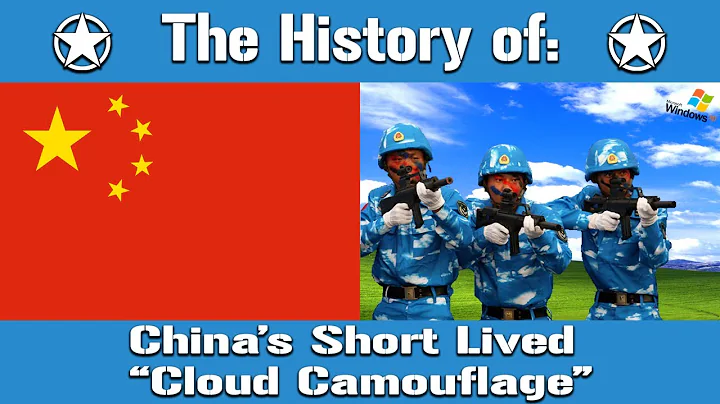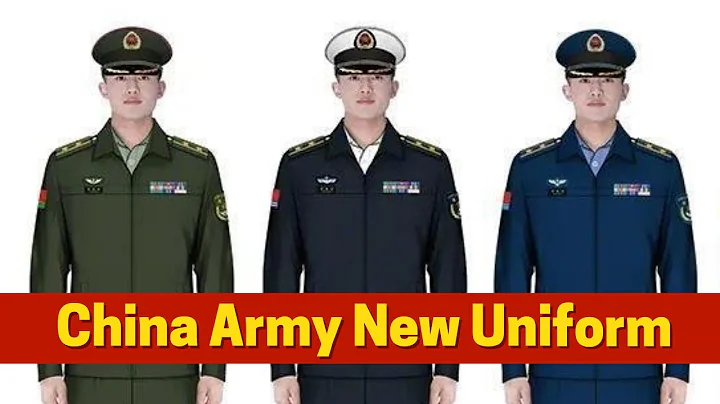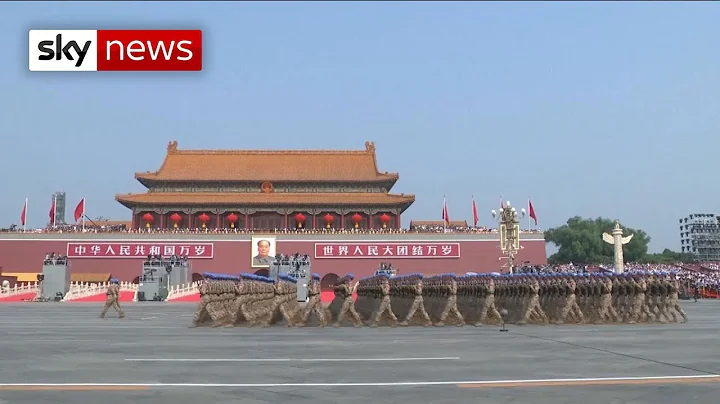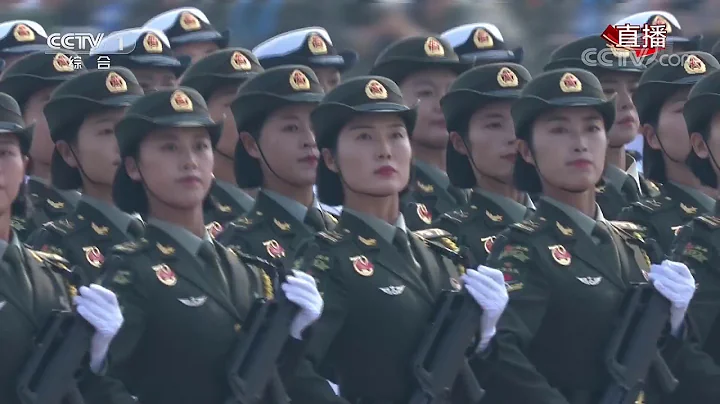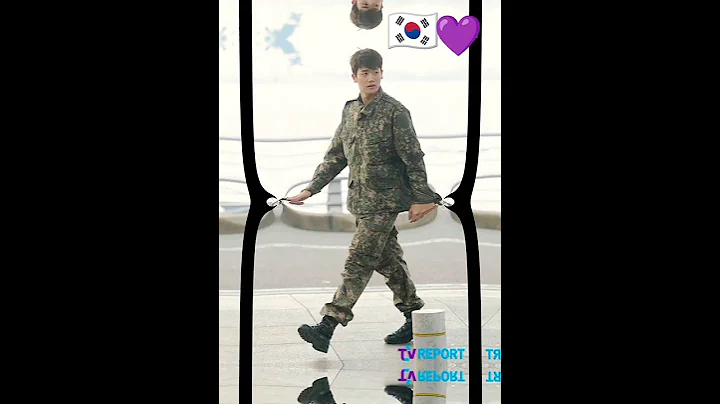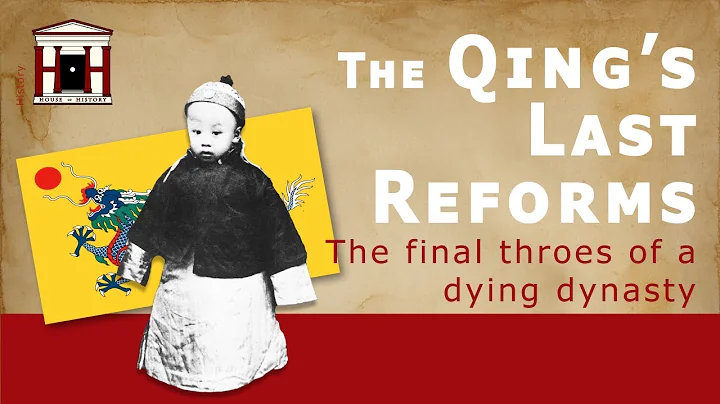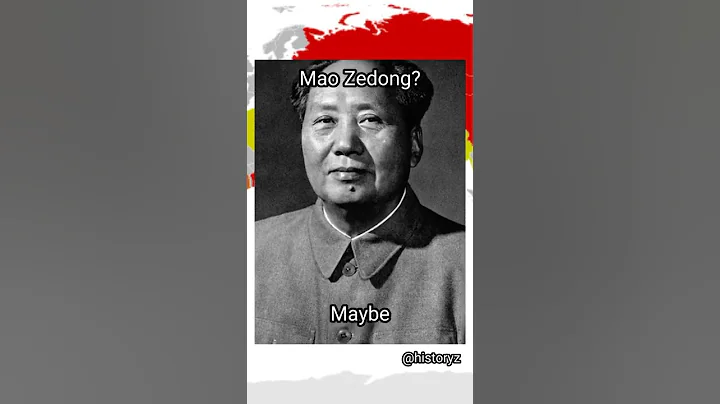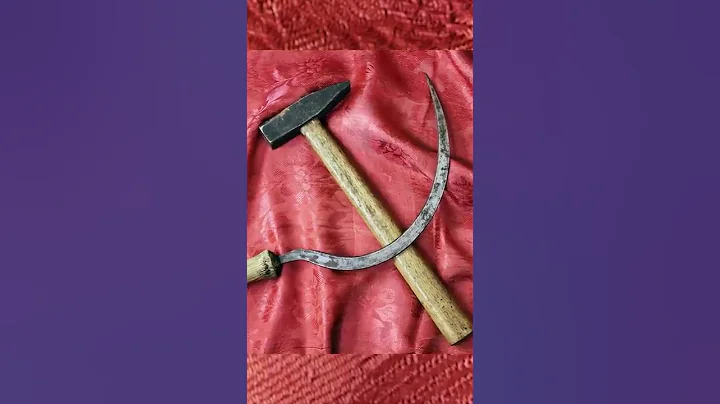In June 1949, Wang Shengrong took off his military uniform and came to the Central-Southern Ministry of Military Affairs and Industry as the first deputy minister. At the same time, he also served as the director of the Nonferrous Metals Industry Administration.
But not long after, in 1952, he was reported for corruption.
When this matter was reported to Chairman Mao, Chairman Mao shook his head and said to the person next to him: "I don't believe it! He is not a money-grubbing person."
In the end, the Central and South Bureau weighed the opinions of all parties and demoted Wang Shengrong to deputy director. department level, and then "decentralized" to a certain construction engineering bureau in Wuhan.
html Fifteen years later, in 1957, Chairman Mao visited Wuhan for an inspection. He asked everyone about Wang Shengrong, but everyone was confused about the name.
When Chairman Mao saw this, his heart sank, and he quickly asked people to find out where Wang Shengrong was. Later, everyone learned that Wang Shengrong was working as the deputy director of Hanyang Steel Rolling Mill at this moment. When they found him, he was lame and working on the construction site with the workers.

Picture | Wang Shengrong
When Chairman Mao found out, he sighed and said to the leaders of Hubei Province: "Transfer Wang Shengrong to the Hubei Provincial Metallurgical Department as the director!"
Who is this Wang Shengrong? When others said he was corrupt, why didn't Chairman Mao believe him, and why did he take the initiative to promote him to director?
What is the story between them?
1. Saved Chairman Mao at gunpoint
To talk about the relationship between Chairman Mao and Wang Shengrong, it can be described as a life-and-death acquaintance. The most important thing is that without Wang Shengrong, there would be no current Chairman Mao, let alone the current New China.
In the winter of 1932, Chairman Mao was resting at his residence, but suddenly, there was a burst of gunfire in the distance.
"What's going on?" Chairman Mao stood up alertly.
Just when he wanted to go out for a look, the security guard rushed in and said: "Chairman, let's go quickly. We have been exposed. We are surrounded by reactionary militia. The Kuomintang troops are coming soon!"
When Chairman Mao heard this, he was heartbroken. It's not good to scream secretly. It turned out that the trip was in a hurry and he only brought a few guards with him. Now that he is under fire, it may be difficult to escape. Chairman Mao was thinking about this, but his hand movements were not slow at all. He picked up the pistol and said to the guard: "Let's go! Let's go to support!" After
finished speaking, he rushed out.
The enemy leader on the other side shouted excitedly: "Brothers, cheer up, here lives Mao Zedong, the Chairman of the Central People's Government of the communist bandits. As long as we catch him, we will not have to worry about it for the rest of our lives. All glory and wealth are waiting for us..."
The two sides began to fight.
Although the guards were brave and capable, the number of these reactionary militia groups was too great. Soon, Chairman Mao and the guards were forced into a corner in the yard.
The guards fell one after another, and Chairman Mao was also in danger.

Picture | Chairman Mao and the guards took a photo
Several regiment members were holding rifles and approaching Chairman Mao with ferocious smiles. At this time, suddenly there was an angry shout from outside the hospital:
"Ha!"
Several regiment members followed the sound, But what greeted them were a few bullets.
The person who came was a capable Red Army soldier, holding a shell gun in his hand. After killing several regiment members, he rushed to Chairman Mao: "Chairman, are you okay? Our people have arrived, let's evacuate first!" "
Chairman Mao escaped death, but his voice was still calm: "Okay! Let's go!"
On the way to evacuate, Chairman Mao learned that the name of the soldier who rescued him was Wang Shengrong, who was the captain of the Young Communist Party at that time.
Then why does Wang Shengrong appear here?
It turned out that the Chinese Soviet was going to hold a meeting. At that time, Chairman Mao was conducting investigation and research in southern Jiangxi. Wang Shengrong was ordered to inform Chairman Mao. Coincidentally, when Wang Shengrong led a platoon of soldiers to the vicinity of Chairman Mao's station, he heard gunshots.
Wang Shengrong was afraid that something would happen to Chairman Mao, so he took a few soldiers and rushed over first. By chance, he rescued Chairman Mao in time.
Chairman Mao said seriously: "Comrade Wang Shengrong... I remember you!"
2. The test of people's hearts
After returning, Chairman Mao asked everyone about Wang Shengrong.
Wang Shengrong is actually from Wuhan, Hubei. His family is a poor fisherman. He joined the Communist Party as early as 1927. In his early years, Wang Shengrong made a living in Shanghai, and Shanghai was the center of the revolutionary storm. Therefore, Wang Shengrong accepted revolutionary ideas very early and actively joined the Shanghai workers' movement.
After the failure of the great revolution, he was arranged by the party organization to study at Sun Yat-sen University in Moscow. In the same year, Wang Shengrong returned to China after completing his studies and took charge of the work of young pioneers, contributing his own strength to the consolidation and expansion of the revolutionary base. Later, Wang Shengrong went to the Central Soviet Area to serve as secretary of the county party committee, and began his revolutionary years in the anti-encirclement and suppression campaign.
In this process, Wang Shengrong did two major things - these two major things made his name spread more and more widely in the Soviet Area.
One of them is the one mentioned above, when he saved Chairman Mao from the enemy's gunpoint; the other was that in January 1933, Wang Shengrong delivered a batch of key funds to the party organization.
Why is this a big thing Wang Shengrong did?
In fact, the difficulty of transporting funds during the Red Army period was really no less than that of a Long March. Not to mention the distance of thousands of miles, the Kuomintang's layer-by-layer checkpoints along the way gave the transportation personnel responsible for transportation a headache. Sometimes, just delivering an ordinary letter would take two months. Not to mention the shipping costs.
In January 1933, the Provisional Central Committee moved to the Central Soviet Area. It did not take long for the Central Shanghai Bureau to encounter financial constraints.
Shanghai is the center of the White Terror. If you want to carry out revolutionary activities here, it will be difficult to "survive" without a good identity as a disguise. In an economically developed area like Greater Shanghai, no matter how much money is saved, it is never enough.
So the Shanghai Bureau asked the Provisional Central Committee of the Soviet Area for help. Although the Soviet Area was also strapped for funds, it still found ways to raise a huge sum of money.

However, the temporary central government has taken into account the difficulties and dangers on the road, but it has not considered the issue of human nature.
sent someone to carry 20,000 US dollars for the first time. However, halfway through, the person who sent the money simply absconded with the money and was never found again.
After re-selecting candidates for the second time, he gave another 20,000 US dollars, but the result this time was the same. As before, both people and money disappeared.
For the last time, the Central Committee learned from the pain and decided to find someone who could truly withstand the test, especially in the face of a huge fortune of tens of thousands of dollars. Therefore, the Provisional Central Committee found Wang Shengrong.
At that time, Wang Shengrong took charge of the youth movement after returning to China in October 1930. He attended the Soviet Area Congress of the Communist Youth League and was also a representative of the First Soviet Area Congress.
In terms of qualifications, Wang Shengrong is not the eldest, so why did the Party Central Committee choose to believe him? Records at that time are that the central leadership finally identified him as the third "fund carrier" through visits and internal party evaluations.
Zhou Enlai's wife, Deng Yingchao, personally handed the box containing 35,000 US dollars to Wang Shengrong, and exhorted: "Shengrong! I'll leave it to you. It must be delivered to Shanghai to Comrade Chen Yun!"
Wang Shengrong took it. Although the box was not heavy, he felt the heavy "weight". He replied seriously and solemnly: "I promise to complete the task!" In this way, Wang Shengrong set out from Jiangxi with a few people, and went through many difficulties along the way. He took risks and escaped countless interrogations. In the end, Wang Shengrong lived up to expectations and handed over a lot of money to Chen Yun.
Therefore, after the two incidents of "saving Chairman Mao" and "sending funds", Wang Shengrong's "reputation" within the party became more and more famous.
However, what Wang Shengrong did not expect was that fate gave him a huge "surprise" later.
After sending the funds, Wang Shengrong participated in the Long March, and then devoted himself to the Anti-Japanese War. Although Wang Shengrong has been responsible for political work before, his military qualities on the battlefield are not inferior to those of our army's generals. What's even more rare is that he can combine military and political affairs extremely skillfully.
For example, the creation of the Fifth Division of the New Fourth Army is a typical example.

After the July 7th Incident, the main Red Army in the northwest was reorganized into the Eighth Route Army. In December, the Eighth Route Army Office moved to Wuhan. However, there was a lack of talent at the time and the organization was unable to function.
Hubei Provincial Party Committee Secretary Dong Biwu asked the Party Central Committee to appoint Wang Shengrong to take charge of this matter. Wang Shengrong, who was born and raised in Wuhan, naturally wanted to contribute to his hometown, so he happily went. On his way to take office, when Wang Shengrong passed through Hubei and Henan, he found many "bandits" gathered nearby, and most of these "bandits" were repatriated personnel from some armies.
Wang Shengrong immediately changed his mind. After his persuasion and mobilization, he successfully recruited these people and turned them into part of the New Fourth Army.
After arriving in Hubei, Wang Shengrong began to be responsible for the united front work in the office. However, after Wang Shengrong worked for a period of time, he felt that dealing with the upper echelons of the Kuomintang and celebrities was really more tiring than fighting a war.
So Wang Shengrong, with Dong Biwu's consent, went to the nearby guerrilla zone to prepare a guerrilla team for the party organization. Wang Shengrong started his "old business" like a fish in water. He first recruited a group of guerrillas through mobilization, and then considering that there were many separated Red Army soldiers nearby, he took the initiative to find them, take them in and train them , add to the team.
The team was assembled, and Wang Shengrong led them to "fight to support war" to sharpen their bloodiness and combat effectiveness. What surprised many people was that Wang Shengrong's tactical literacy turned out to be so high. The most famous battle was when he relied on a team of several hundred people to ambush and annihilate the largest bandit team nearby, with more than a thousand people.
After that, he continued to lead the troops and fought many battles in which fewer and more were defeated. With his efforts, the bandits nearby were basically wiped out. The people were very grateful to Wang Shengrong. It didn't take long. With the efforts of Wang Shengrong, the guerrilla team of several hundred people turned into a team of 2,000 people. This latter force directly became part of the main force of the Eighth Route Army and the fifth division of the New Fourth Army .
In this sense, Wang Shengrong can be regarded as one of the founders of the fifth division.
However, just as Wang Shengrong's life continued to reach the "peak", a sudden change completely knocked him into a trough.
3. Fire!
In fact, if you find photos of Wang Shengrong in the second half of his life, you will find that he was always in a wheelchair, and you will find that he only had one leg.
After Japan unconditionally surrendered in August 1945, Northeast China became the focus of our army's attention.
In fact, this is not difficult to understand. It is a strategic need to seize the Northeast. During the years of fighting the Japanese army, although our army has certain bases in Shandong, Jiangsu, Hebei and other places, in fact, these are flat on all sides and have no control. A place that is both dangerous and vulnerable to attack. But the Northeast is different. Its geographical location is extremely suitable for becoming the military rear area. To the north is the Soviet Union. For us at that time, there was no need to consider the threat of attack.
In addition, the second reason is because of the favorable conditions of the Northeast region. After all, the Northeast accounted for 95% of the national industrial output in 1945.

So as soon as the Anti-Japanese War ended, our army set out to march into the Northeast and prepare to open up new base areas. At that time, Wang Shengrong had a background in the Soviet Union, so he was among the cadres dispatched.However, no one expected that Wang Shengrong would lose his leg when there was nothing dangerous in the first place.
What is going on?
When Wang Shengrong drove from Yan'an to the northeast, he replenished his troops to 6,000 people along the way. When he finally arrived in the northeast, with the help of the Soviet Red Army, Wang Shengrong led his troops to capture Qiqihar. Wang Shengrong also served as secretary of the municipal party committee at that time.
Once, he was holding a mobilization meeting on the podium and while he was speaking, a gunshot suddenly rang out in the room.
"Attack?"
Everyone was shocked, and many people squatted down immediately subconsciously. The guard company commander rushed in and roared: "Alert!" When everyone saw that the gunshots did not continue, they stood up and looked around. At first glance, everyone discovered that Wang Shengrong on the stage was covering his left leg and had fallen down.
The guard company commander rushed over and moved Wang Shengrong to the back. After the scene calmed down, the guard looked ugly and began to investigate the source of the gunfire.
"Could it be the KMT agents who did it?" People speculated one after another.
It didn’t matter if the guard didn’t check. Once he checked, he was dumbfounded. It turned out that there was no spy at all. It was just a soldier from the security company downstairs who accidentally discharged his gun while cleaning it. The bullet happened to penetrate the ceiling and hit the podium. Wang Shengrong.
Everyone was stunned when they saw this result. The guard was too careless and did not take out the bullet when cleaning the gun. It was important to send Wang Shengrong to the hospital at that time, so no one was in a hurry to "question the guilt" of the guard.

It stands to reason that although the bullet hit the thigh, fortunately it was not a fatal part. As long as the bullet is taken out, it should be fine. But the coincidence is here. At that time, the bullet was shot from the sole of Wang Shengrong's left foot into his calf. Wang Shengrong happened to be wearing dog leather boots.
Why do you need to carry leather boots? One thing that everyone has overlooked is that leather boots made of dog skin actually contain a lot of bacteria. They are not even noticeable when worn on the feet, but once they touch a wound, they can be extremely harmful.
At that time, there was a deadly bacteria in the dog leather boots. The medical level at that time was limited. Although the doctor had given Wang Shengrong various preventive vaccines, he still did not expect the deadly bacteria. The bacteria caused Wang Shengrong's wound infection and began to spread upwards. The final result turned out to be that his leg had to be amputated to save his life.
Everyone who heard the news was shocked. Wasn't there a bullet in the thigh? How did you end up with an amputation?
When the doctor told Wang Shengrong this cruel decision, Wang Shengrong was silent. For a soldier, losing his leg is undoubtedly losing his life. He could not return to the battlefield, nor could he return to the army where he had spent his whole life.
After a long time, he said: "Then... let's cut it off!"
After he finished saying this, there was a dead silence in the room. Everyone lowered their heads, not daring to look at him, or they couldn't bear it, or maybe It's helpless.
"That's right... that's right, let's not pursue that guard soldier! What has happened has already happened, and nothing you do will help. It's enough that I, Wang Shengrong, am still alive. Even if I only have one leg, I can travel all over the world!"
Everyone looked at him in shock, and then a heartfelt respect arose in their hearts.
...
After this incident, Chairman Mao also heard about it. He wrote a letter to Wang Shengrong to express his comfort. In the letter, he specifically mentioned that he wanted to transfer him to the Northeast Bureau Military Industry Department as a political commissar. Wang Shengrong agreed. He felt that he would not be able to go to the field troops to charge into battle, so going to the Ministry of Military Industry would be considered "using his remaining energy"!
When the War of Liberation started, the role of the Ministry of Military Industry was actually highlighted, because weapons and ammunition were a key factor in determining the war. Although Wang Shengrong is disabled, his rigor and great wisdom in doing things have not been affected.He pushed for military production, making arms manufacturing in the entire Northeast tense and orderly. Large quantities of arms continued to arrive at the front line, making huge contributions to the War of Liberation.
Originally, Wang Shengrong lost a leg, which was considered a low point in his life, but fate did not let him go in the end.
4. Corruption
When the Liberation War was coming to an end, Wang Shengrong came to the Industrial Department of the Central and South Military and Political Commission according to the order of the party organization and became the director of the Nonferrous Metals Industry Administration at that time. In March of the following year, Premier Zhou contacted Wang Shengrong and asked him to complete the task of exporting 10,000 tons of tungsten sand within one year. This tungsten sand was mainly used to exchange some mechanical equipment with the Soviet Union.
New China had just been established at that time, and there was a lot of waste waiting to be done. It was a critical "transformation" moment, so these Soviet machines must be captured.
But Wang Shengrong, who has always had many ideas, was in trouble at this moment, because the situation at that time was that he had just taken over the Nonferrous Metals Industry Administration Bureau. This year's output was only 300 tons, and he had to produce 10,000 tons of tungsten sand within a year. It's really not that simple.
So Wang Shengrong suggested to Premier Zhou that he should request support from several nearby provinces. Premier Zhou agreed and wrote a letter himself.
Wang Shengrong took the letter and went to various provinces to "ask for help" while visiting various tungsten sand mining areas to strictly control the progress.

At this moment, Wang Shengrong received information that when Chiang Kai-shek escaped, there were still one thousand tons of tungsten sand in Hong Kong that had not been disposed of. Wang Shengrong immediately asked Premier Zhou to see if he could sell the one thousand tons of tungsten sand first. In exchange for some urgently needed machinery for the tungsten sand mine. Only in this way can the output be gradually increased, and only then can we have the opportunity to complete the "10,000 tons" task.
After Premier Zhou agreed, Wang Shengrong immediately moved out the tungsten sand, replaced a lot of machinery and trucks, and completed the task within the specified time. However, some things were not handled well at that time, which laid hidden dangers for the future. These things later became evidence of Wang Shengrong's "corruption".
Some people made a big fuss about his misappropriation of one thousand tons of tungsten sand, saying that he enriched his own pockets and was a big embezzler. At that time, because it had been a long time since the incident, some things could not be explained clearly. In the end, Wang Shengrong was temporarily suspended and underwent investigation.
When Chairman Mao found out about this matter, he specifically asked about it, but after hearing it, he shook his head: "I don't believe that Wang Shengrong is corrupt... He was not corrupt when he sent funds, so what's the matter now? Will he?" Afterwards, Chairman Mao confirmed Wang Shengrong's situation to Premier Zhou, and Zhou Enlai said firmly: "Not only is he not guilty, he has merit!"
In the end, after weighing the opinions of all parties, the Central and South Bureau removed Wang Shengrong from the deputy ministerial level. He was demoted to the deputy director level and then "decentralized" to a certain engineering bureau.
A few years later, Mao Zedong visited Wuhan. Suddenly he remembered Wang Shengrong, so he turned to the leader of Hubei Province at the time and asked:
"Where is Wang Shengrong now?"
Everyone looked at me and I looked at you, but no one spoke. , one person asked: "Chairman... who is this person... It seems that there are no leaders at the provincial and municipal levels in Hubei with this name." Chairman Mao's heart sank. He remembered that Wang Shengrong was a deputy ministerial-level cadre. Even if he is demoted later, he will not lose any fame at all.
"Go and look for it, you will definitely find it!" Chairman Mao said.

Picture | Chairman Mao
The people around me heard what the Chairman said and did not dare to neglect. They quickly asked the people below to mobilize all their connections to search for it. After searching, it was really there! It turned out that Wang Shengrong was the deputy director of the Engineering Department of the Construction Engineering Administration. When everyone saw him, he was working lamely with the workers on the construction site of the Hanyang Steel Rolling Mill.
When Chairman Mao found out, he sighed and said proactively: "Transfer him to the Provincial Department of Metallurgical Industry as director, and then let him enjoy deputy provincial treatment!"
...
In 2006, Wang Shengrong passed away in Wuhan at the age of 99. age.
Wang Shengrong made great contributions to New China during his military life. His life was a glorious and brilliant life. He is also a revolutionary warrior with faith. He has experienced great tragedies and joys, ups and downs, but still maintains a strong will.
Here, we pay tribute to Comrade Wang Shengrong!
. END .
Text: 一 Zero
Editing and typesetting: Xiaoyuan
